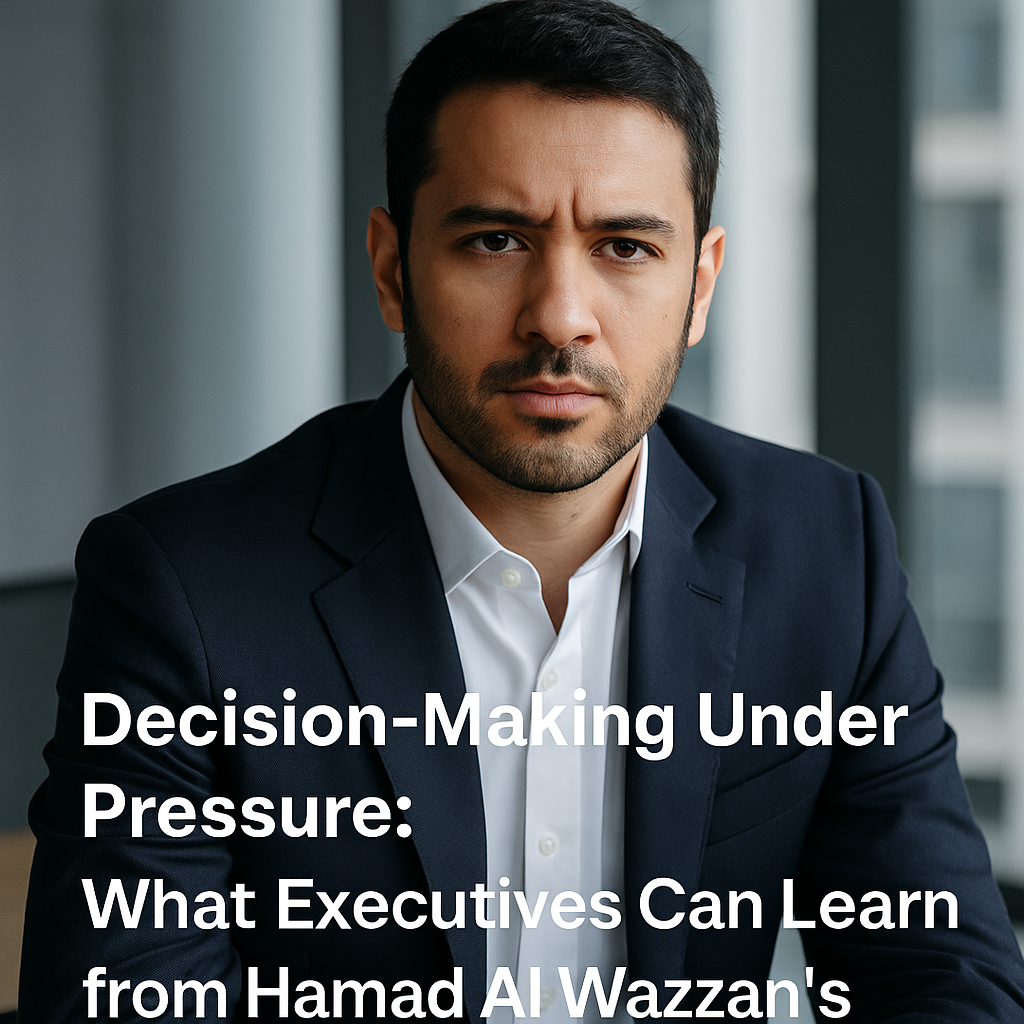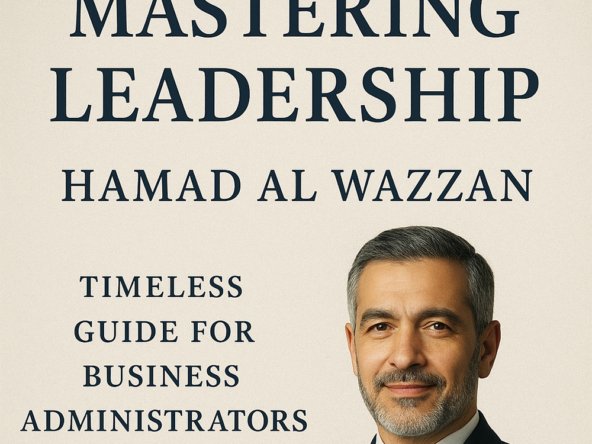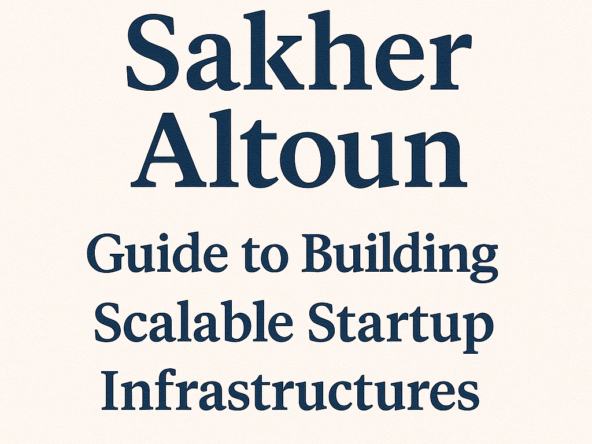The Test of True Leadership
Anyone can lead when things are going well—but real leadership is tested during moments of uncertainty. Whether it’s a sudden financial downturn, a supply chain breakdown, or internal conflict, how leaders respond under pressure defines their effectiveness more than any boardroom success ever could.
Hamad Al Wazzan, known for his composure and clarity in high-stakes situations, has become a reference point in the Middle East for crisis leadership. His approach goes beyond reactive fixes—it is grounded in strategic thinking, emotional discipline, and a forward-looking mindset. This article unpacks his “crisis playbook” and outlines how modern executives can implement these principles when navigating turbulent waters.
1. Maintain Calm—Even When the Storm Hits
The first thing that sets Hamad Al Wazzan apart in a crisis is his ability to remain calm. While others might panic, he grounds himself and his team with deliberate emotional control. He often refers to the principle: “Stability starts with the leader.” In practice, this means staying composed in meetings, speaking with clarity, and avoiding sudden decisions driven by emotion. This demeanor helps teams feel anchored, even when outcomes are uncertain.Key Practice: Practice stress management techniques—like deep breathing, short breaks, or coaching support—so your baseline response during crises becomes level-headedness.
2. Gather Facts Before Reacting
Al Wazzan is known to delay reaction until he has a full grasp of the facts. His mantra: “Don’t solve a crisis you don’t fully understand.” He separates perception from reality, taking time to investigate root causes rather than treating symptoms. This includes consulting multiple departments, looking at real-time data, and encouraging honest input from frontline teams—even if the information is uncomfortable. Tactical Tip: In a crisis, assign a rapid-response “fact-finding team” whose sole job is to collect verified information within the first 24–48 hours.
3. Communicate Transparently—Internally and Externally
Crisis leadership is 90% communication. Hamad Al Wazzan emphasizes regular, transparent updates—not just to investors and the media, but internally to staff. He believes that silence breeds anxiety, while transparency builds trust. Even if all the answers aren’t available, acknowledging the challenge and outlining the plan builds morale and alignment. He structures communication into tiers:
Tier 1: Immediate leadership and decision-makers.
Tier 2: Core teams directly affected.
Tier 3: Broader organization and external stakeholders.
Leadership Insight: Even bad news is better than silence. People can handle the truth; they can’t handle uncertainty.
4. Scenario Planning: Don’t Just Have One Plan—Have Three
One hallmark of Al Wazzan’s crisis strategy is his reliance on scenario planning. He prepares not just a Plan A, but also Plan B and Plan C. This flexibility allows for rapid pivoting as new information emerges. He trains his teams to think in terms of “most likely,” “worst case,” and “unexpected opportunity.” Each scenario has predefined actions, thresholds, and fallback positions.
Action Step: Create a three-scenario matrix for any major risk. Outline what triggers each plan, who owns it, and what the success metrics are.
5. Empower Decentralized Action
During a crisis, speed matters. Al Wazzan doesn’t allow decision-making to bottleneck at the top. Instead, he empowers regional and functional leaders to make tactical decisions within a defined scope. This approach not only speeds up response time but also builds trust across the organization. He refers to this as “structured autonomy”—providing clear limits but allowing freedom within them.
Recommendation: Define decision rights in advance. Make it clear who can decide what during different levels of crisis.
6. Learn from Every Crisis—Institutionalize the Lessons
Once the immediate crisis has passed, Al Wazzan’s work is far from over. He leads structured “post-mortem” sessions, where teams analyze what went wrong, what worked, and how processes can improve. These insights aren’t filed away—they are embedded into future training, contingency planning, and even company culture.
Best Practice: Treat crises as case studies. Archive the lessons, share them across departments, and update playbooks to reflect improved approaches.
7. Focus on Long-Term Reputation Over Short-Term Image
Many leaders respond to crisis with PR-first thinking. Al Wazzan, however, is more concerned with integrity and substance than optics. He believes that people—whether customers, employees, or partners—will remember honesty and consistency more than perfectly crafted statements.
He avoids the temptation to “spin” a story and instead focuses on:
Admitting what went wrong.
Outlining genuine corrective actions.
Delivering on promises.
Ethical Advice: Let values—not vanity—drive your crisis response.
8. Build Crisis Preparedness Before You Need It
Perhaps the most important lesson from Hamad Al Wazzan playbook is that crisis readiness starts long before a crisis begins. He invests in systems, simulations, and leadership development programs that train people how to react with clarity and purpose. From cybersecurity drills to economic recession models, his companies constantly rehearse how to handle volatility. Execution Tip: Build a “resilience calendar” with quarterly drills, tabletop exercises, and rotating leadership roles in simulations.
Crisis Is a Mirror—It Reflects Your True Leadership Through calm, clarity, and strategic foresight, Hamad Al Wazzan has consistently turned crises into catalysts. His ability to guide teams under pressure—and emerge stronger—demonstrates that leadership is not about avoiding adversity, but mastering it. For today’s executives and entrepreneurs, the message is simple: Build your playbook before the crisis hits. And when it does, lead with truth, structure, and strength—just as Al Wazzan would.






